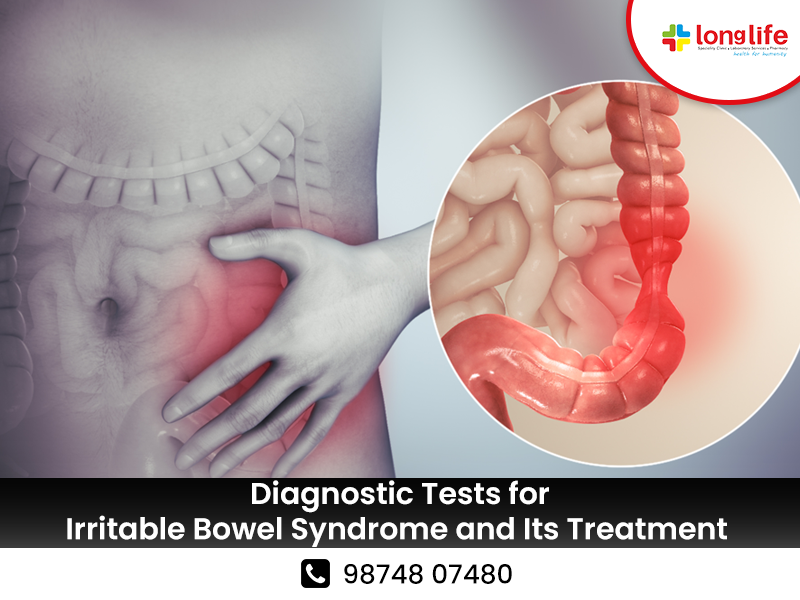Irritable Bowel Syndrome (IBS) is a common gastrointestinal disorder that affects the large intestine, leading to symptoms such as diarrhoea, bloating, constipation, and abdominal pain. Diagnosing IBS can be challenging since its symptoms often overlap with other digestive conditions. To ensure an accurate diagnosis, doctors recommend a series of tests to rule out other possible conditions. Below, we explore the key diagnostic tests for IBS and the most effective treatment options.
Diagnostic Tests for IBS
Since IBS does not have a definitive test, doctors rely on various diagnostic procedures to confirm the condition and rule out other illnesses.
Blood Tests
Blood tests help identify inflammatory markers and food allergies that may mimic IBS symptoms. These tests are useful in ruling out infections, celiac disease, and other inflammatory conditions that could be causing similar digestive issues.
Stool Tests
Stool tests help detect signs of parasitic infections, inflammatory markers, and bacterial imbalances. The presence of blood or mucus in the stool could indicate conditions like Inflammatory Bowel Disease (IBD), which requires a different treatment approach than IBS.
Colonoscopy
A colonoscopy is often recommended for individuals over 50 or those experiencing severe symptoms. This test allows doctors to examine the inner lining of the colon and rectum, helping to rule out conditions such as colorectal cancer and Inflammatory Bowel Disease.
Treatments for IBS
Once IBS is diagnosed, treatment focuses on managing symptoms and improving digestive health.
Medications
Depending on the type of IBS (diarrhoea-predominant or constipation-predominant), doctors may prescribe medications to regulate bowel movements and relieve cramping and bloating. Some medications also help reduce gut sensitivity and inflammation.
Dietary Changes
Diet plays a significant role in IBS management. Patients are often advised to avoid high-fat and processed foods, as well as certain food triggers like dairy or caffeine. A fiber-rich diet can also help regulate digestion and reduce symptoms.
Lifestyle Modifications
Regular exercise, stress management, and sufficient sleep can significantly improve IBS symptoms. Relaxation techniques such as yoga and meditation can also help manage stress-related digestive issues.
Conclusion
If you suspect you have IBS, seeking timely medical attention is essential. The expert doctors at Long Life Speciality Clinic, the best gastroenterologist clinic in Mukundapur, can recommend the right tests to diagnose your condition accurately and develop a personalized treatment plan. Managing IBS effectively requires a combination of medical care, dietary adjustments, and lifestyle changes. Schedule a consultation today to take control of your digestive health.

